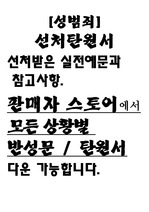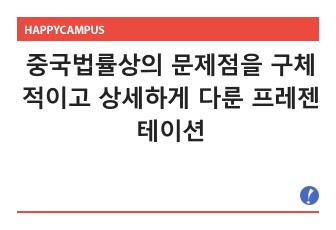한국과 일본여성의 식문화 의식과 전통식품 소비실태 비교 연구
(주)코리아스칼라
- 최초 등록일
- 2016.04.02
- 최종 저작일
- 2003.08
- 13페이지/
 어도비 PDF
어도비 PDF
- 가격 4,500원

* 본 문서는 배포용으로 복사 및 편집이 불가합니다.
서지정보
ㆍ발행기관 : 한국식생활문화학회
ㆍ수록지정보 : 韓國食生活文化學會誌 / 18권 / 4호
ㆍ저자명 : 고경희
영어 초록
We conducted a survey on Japanese women's consciousness of food culture and their traditional food consumption by self filling-out questionnaire during January, 2000 for the period of a month, For the survey we selected 250 women residing in Kyoto, Japan. For the statistic work we used SAS package system, and t-test, X2-test and Duncan's multiple range test were also used to verify the results significance. The purpose of this survey lies in gathering a basic data on the comparative direction of Korean and Japanese women's food culture in the future 1. Comparing the preferred food purchase place, In case of Korean women, traditional market was comparatively more preferred while Japanese women relatively preferred convenience store (p〈0.001). 2. In case of Japanese women, they answered there is no difference from ordinary days on New Year's Day (71%) and Christmas (40%) while 38% answered they prepare food at home. 40% said they prepare food on parents-in-law's birthday, and 41% said no difference from ordinary days. 52% said they prepare food at home on husband's birthday. For their own birthday, 32% said yes to preparing food at home while 45% said no difference and 22.3% said eating out. For children's birthday 65% said preparing at home, 16.3% said no difference and 14.9% said eating out. 3. Comparing the conception on traditional food, Korean women answered 'complicated' (77%) most while 'simple' (5%) least, which indicates their demands for simplified recipes. In case of Japanese women, 'complicated' (44%) was most while 'scientific' (6%) was least which indicates their demands for scientific way of recipes. There were differences shown by age (p〈0.001) and the older the more said 'simple' or 'logical' (p〈0.01). 4. As the reason for the complicity of traditional food recipes, Koreans said 'too many hand skill' (60%) most while 'too many spices' (8%) least. For Japanese, 'various kind of the recipe' (55%) was most while 'too many hand skill' (7%) was least. There were significant differences shown by academic background (p〈0.01) and income(p〈0.01), and the lower the academic background, the more said 'too many spices' as the reason for the complicity in making traditional food. Generally, the lesser the income, the more tendency to say 'various kinds of the recipe'. 5. In case of Koreans, 'the recipe is difficult' (56%) was high while 'uninterested' (9%) was low in answer which showed differences by academic background (p〈0.05), and in case of Japanese, 'no time to cook' (44%) was high while 'uninterested' (7%) was low. 6. The following is the reasons for choosing traditional food as a snack for children. In case of Koreans, they answered as 'traditional food' (34%), 'made from nutrious and quality materials' (27%), 'for education' (22%) and 'suites their taste' (17%) revealing 'traditional food' is highest. In case of Japanese, it was revealed in the order of 'made from nutrious and quality materials' (36.3%), 'traditional food' (25.2%), 'suites their taste' (22.6%), 'for education' (12.8%) and 7. Comparing the most important thing for the popularization of traditional food in the world, Koreans answered 'taste and nutrition' (45%) most while 'shape and color' (6%) least. In case of Japanese, 'taste and nutrition' (75%) was answered most while 'hygienic packaging' (4%) was least. Both considered 'taste and nutrition' as most important thing for the popularization of traditional food in the world. 8. In case of Koreans, they answered they learn how to make traditional food 'from mother' (47%), 'media' (18%), 'school' (15%), 'from mother-in-law' (14%), 'private cooking school' (4%) and 'close acquaintances' (2%). In case of Japanese, they said mostly learn 'from mother', but it was also shown that the lower the academic background the lesser the tendency of learning 'from mother' but 'from school' (p〈0.001). 9. About the consumption of traditional fermented food, Koreans said they..
참고 자료
없음
"韓國食生活文化學會誌"의 다른 논문
더보기 (3/8)




